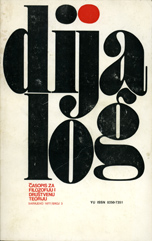Author(s): Elizabeth A. Behnke,Cristian Ciocan / Language(s): English
Issue: 12/2012
The phenomenological tradition has been addressing the theme of embodiment from the very beginning. Indeed, Husserl was already describing the kinaesthetics of vision even before the Logische Untersuchungen appeared (see Husserliana XXII, pp. 275ff . and 416–19, for texts from around 1893 and 1894). His lifelong investigations of the structures of embodied experience tended to gravitate around two main poles: on the one hand, the necessary role of embodiment in the constitution of our practical/perceptual world, and on the other hand, the necessary implication of embodiment in the experience of others. His chief findings in the former context are well known, focusing on the body as the central here or “null-point” (Nullpunkt) around which the practical/perceptual world is oriented; the kinaesthetic capability (“I-can”) through which I am able to “govern” (walten) my own movement in unparalleled immediacy; and the body as organ of perception, not only in terms of the various sensory fields through which I can experience both my own body and other items in the world (for example, I can see, hear, or touch myself as well as other things), but also in terms of the unique somaesthetic sensations (Empfindnisse) through which one and only one phenomenon is given: namely, my own lived body, uniquely felt as mine. All this, however, also comes into play in the second major context of Husserl’s work on embodiment, for when I see the physical body (Körper) of another, I do not see a merely physical body, but a lived body (Leib) that stands at the center of its own lived world, that is capable of self-movement, and that is uniquely felt as “mine” by the person concerned. For Husserl, then, my own body participates in a “bodily intersubjectivity” (Husserliana IV, p. 297) arising in a pre-reflective “coupling” (Paarung) between the body I live directly and the other embodied lives with whom I share the world.
More...


